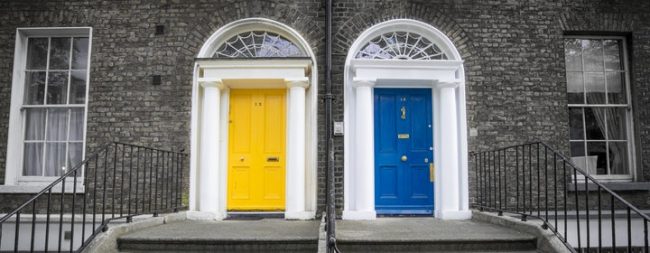Various factors, such as employment prospects, family situations, lifestyle choices and investment goals, come in to making the decision about whether to buy or rent a home.
In any market, there are different reasons for why you may choose to do one or the other, as there are good arguments for both renting and buying that depend on individual circumstances. Here is a brief overview of the options in today’s climate.
To Buy
In South Africa, there is generally a culture of preferring to own a home, as purchasing a property is widely considered to be a sound medium- to long-term investment decision. Furthermore, buying a property allows you to enjoy lifestyle benefits, such as decorating to your tastes, owning a pet, and generally doing as you please.
That said, South Africa is currently experiencing a stagnating property market in which the annual growth in house prices is slowing. Taking inflation into account, it would seem that the growth of property prices is actually in decline.
These days, people are understandably becoming more cautious when it comes to buying property. However, although the residential property market is correcting itself — most notably in the Western Cape where property prices had previously increased by 650% in certain areas in the past 15 years — some property managers believe that it is still best to buy, and to get a foot on the property ladder as soon as possible.
Interestingly, the Western Cape is still the top performing regional market, and had a 10.6% price increase from January to June 2018, while the national average was only 4.25%. Furthermore, the slowing of price appreciation in some of the hotspots has had the effect of boosting the market in other parts of the city.
It is important to gather as much information as possible on which to base your decisions, especially when it comes to investment properties, as margins have become much slimmer. However, if finances are tight, a potential option is to rent a house for you and family to live in, while investing in a more affordable apartment, which you should then be able to rent out at approximately 0.5% of the purchase price. This way, you can get a foot into the market, while enjoying a monthly income stream and long-term capital growth on your investment.
It is also possible to create further wealth by upgrading or refurbishing your property, then selling it and buying a more expensive property. However, it’s important to decide carefully what you spend on your home, as you need to consider what will add value for a potential buyer. It’s worth seeking advice from experts if you are unsure. Also bear in mind that, according to Dr Andrew Golding, CE of the Pam Golding Property group, “the old saying that it is better to purchase the cheapest house in an expensive suburb, than the most expensive property in a lesser area, remains true.”
It is also important to take into account the upfront costs involved when purchasing a property, such as the deposit, transfer duty, legal costs, homeowner’s insurance, bank charges and municipal rates. Not to mention the maintenance costs and any levvies that you may need to pay once you are a homeowner. You should also be aware that if you have a bond, the interest rate can fluctuate too.
To rent
An increasing number of people simply don’t have the means to buy a property, and the rental market has benefitted from a generation that is financially not yet able to purchase their first home. Renting can be especially attractive as it does not come with additional expenses, such as rates, taxes and maintenance, which fall on an owner.
However, there are other reasons for why you may choose to rent rather than buy, which are not related to affordability. For example, many people want the flexibility and ease of mobility that renting provides.
Renting can also be a good option if you are returning to South Africa, but are still unsure of where you are going to work or what your future plans involve. Furthermore, renting gives potential buyers a ‘recce’ opportunity so that they can first get a feel for an area, its security, and its access to local amenities, frequented places and transport links.
Renting also buys you the time to do a thorough property search so that you can eventually purchase a suitable home at an attractive price, without having the pressure of needing to urgently find somewhere to live. It will also give you time to analyse potential growth opportunities of different properties and locations.
If you do wish to rent, it’s important to ensure that you have a written lease that covers payment, duration, and all the landlord’s and the tenant’s obligations. Before you sign anything, be sure that you are happy with all negotiations, and that all agreements are clearly stated in the lease. Be aware that a rental contract will often be fixed for at least six months or a year, so be sure to stipulate if you require anything different.
If you keep the property in good condition and honour all your obligations in a timeous manner, you should have no issues in renewing a contract or being reimbursed your deposit. However, the downside to renting is that losing your deposit is always a risk, monthly rental can be expensive, and you will need to ask permission to make any changes to the property.
Whatever you decide, it’s important to do proper research on an area and a property before committing to renting or buying. And it’s also advisable not to over-extend yourself when making a decision — be aware that the rental costs are likely to increase each year; as will levvies, insurance and rates if you purchase a property. Don’t hesitate to arrange a meeting to discuss whether buying or renting a home would be best for your financial situation right now.
Information for this blog was sourced through Fin24.co.za.

